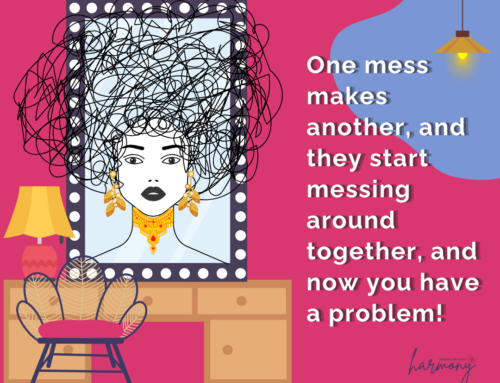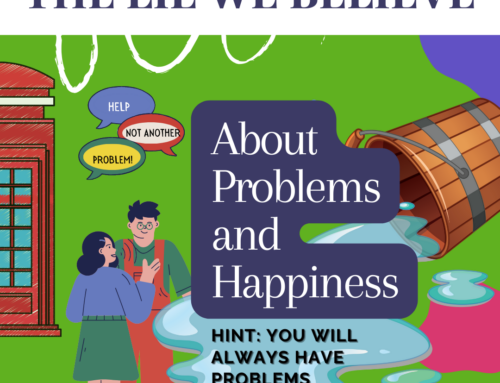Quick Summary
Don’t let your old stories hold you back when the future feels uncertain. Shift from “I don’t know what will happen” to “I have the power to adapt no matter what happens.” Your mindset is your most valuable tool!
We don’t drown out fear with empty affirmations or pretend everything’s fine. It’s about consciously focusing your energy on a different story—the one in which you are not the victim of circumstances but the author of your life.
Focus your energy on a different story—the one in which you are not the victim of circumstances but the author of your life.
Stories of Uncertainty
If you have concerns about your future – you are not alone. For all of our wealth, education, and opportunity in the US, we lead the world in our experience of anxiety.
Along with our knowledge and relative abundance (compared to most of the world’s population), we thrive on accomplishment and progress. That kind of ambition demands that we be in control, and control is the one thing that is beyond our grasp.
At the core of our fear of uncertainty lies a set of limiting beliefs, often hidden beneath the surface. These beliefs tell us that the unknown is dangerous, that we aren’t capable, or that without control, we are vulnerable. Let’s look at two familiar internal stories that fuel this fear:
“I need to have all the answers before I can move forward.”
We don’t even know what questions to ask until we move forward, so answers are irrelevant.
This belief creates the illusion that certainty equals safety. But the truth is, waiting until you feel fully prepared or until you know everything only leads to stagnation.
Consider Jess, a marketing professional who spent years dreaming of starting her own business. Yet, whenever she got close, she’d hold back, convincing herself she needed more research, planning, and experience.
She felt that she needed a guarantee of success to leap.
What held her back wasn’t a lack of knowledge but the belief that uncertainty equaled failure.
So, how can you reframe a belief?
Shift your vocabulary and your thoughts from:
“I need all the answers”
to
“I can figure it out as I go.”
You don’t need the perfect plan, just the willingness to take the first step.
Uncertainty equals risk (and risk is uncomfortable!)
Mark is a self-identified risk-averse guy. In one of our discussions, he said he had considered adding R.A. to his professional designations or as a personal pronoun!
“If I can’t control the outcome, I won’t try.”
Control gives us a false sense of security, and fear creeps in when things feel out of control.
Mark stayed in a job he disliked for years. He would not switch careers (even when offered a job in a favorite city), because it felt too risky! So many things could go wrong. And believe me, he had a long list of what could go wrong. We laugh about it today.
In his mind, keeping the status quo—even though he was unhappy—felt safer than stepping into an unknown where he couldn’t control the outcome.
The need for control paralyzed him, even though it meant sacrificing his fulfillment.
Mark Mastered The Fear
What did he do?
Instead of thinking, “I need control to feel secure,” he focused on everything he could control—his effort, mindset, and willingness to adapt.
Do you know how powerful that amount of control is in your life? Giddy up!
We Can’t Predict Our Uncertain Future
In reality, we have no control over events. So, all this talk about not doing things or trying things out of fear of losing control is humorous.
Even if you do NOTHING. Bad things can and do happen.
We don’t control the future events, but listen up,
We can control how we respond.
What Action Steps Can You Take Toward Uncertainty?
We can’t change these fears overnight, but we can change our approach to life one action at a time by taking one day at a time.
1. Get Comfortable with Discomfort
Growth happens outside of your comfort zone. One way to build resilience is to take small steps into the unknown regularly. Try something new that feels slightly uncomfortable, whether a new hobby, meeting new people, or exploring a new idea. This teaches your mind that uncertainty isn’t a threat but an opportunity for growth. Plus, it’s pretty easy, right?
2. Focus on What You Can Control
A helpful exercise is to write down what you *can* control and what you *can’t*.
For instance:
You can’t control what others think of you,
but you can control how you show up (attitude and expectancy) and respond (to real or perceived responses to you).
You can’t predict the economy,
but you can take proactive steps toward your goals and let the power of compounding actions work their magic.
Let go of the need to micromanage the uncontrollable and empower yourself by acting on what is within your power.
3. Challenge Your “What Ifs”
Fear of uncertainty is often driven by a loop of “What if” thoughts.
- What if I fail?
- What if I lose everything?
- What if I face rejection?
These questions are fear-based and only serve to keep you stuck.
Try this instead:
Challenge your “what ifs” by asking more empowering questions.
“What if I succeed?” Consider what you will do with a life where your risk went well. Think about the way you will feel and what you will experience.
Here is another one:
“What if this challenge teaches me something I never expected?”
This simple shift helps break the cycle of fear and opens you up to new possibilities.
4. Write Your Own Story
Every day, you can rewrite the story you’re telling yourself about your life.
Instead of letting old narratives like “I’m not ready” or “I’m not enough” take over your thinking, make a conscious effort to tell a story about being resourceful, resilient, and capable of facing whatever comes your way.
You’re not reacting to life’s uncertainties—You are, however, crafting your future!
Conclusion: The Key is Adaptability Over Certainty
The truth is that the future is always uncertain and will never change.
What can change is how you approach it.
By recognizing and challenging the limiting beliefs that fuel your fear of the unknown, you can shift your mindset from one of fear to one of adaptability.
You don’t need to know what will happen; you need to trust in your ability to handle whatever comes your way. It’s not about control but confidence in your capacity to evolve, no matter the circumstances. Giddy Up!
The limitations we believe become the reality we experience. We can change that!





